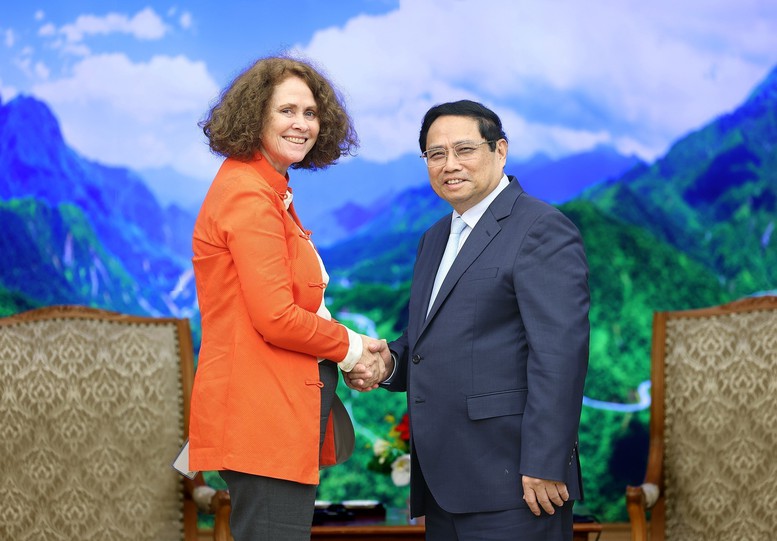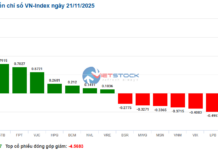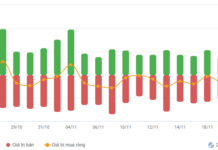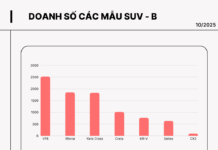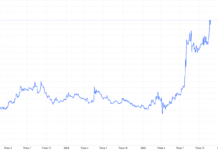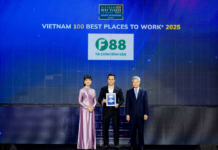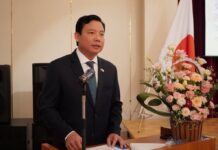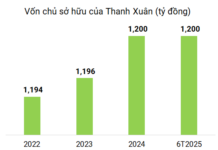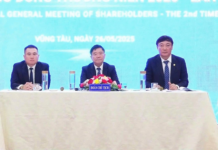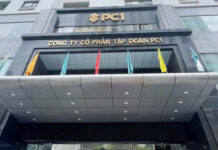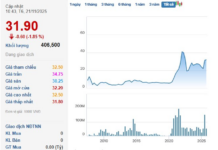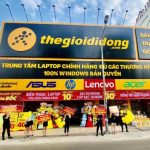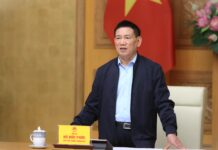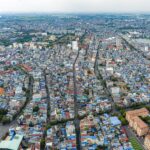The $70 Billion Super-Project
On July 11, Prime Minister Pham Minh Chinh, during a meeting of the Government’s Standing Committee on the proposal for investment in the North-South high-speed rail project, stated, “The goal and requirement are to complete approximately 1,541 km of the North-South high-speed rail line passing through 20 provinces and cities, with a completion time of about 10 years, striving to complete it by 2035.”
In a report to the Government, the Ministry of Transport (MOT) stated that the proposed high-speed rail line is designed to have a speed of 350 km/h, a length of about 1,545 km, and will serve both passengers and cargo when needed. The current North-South railway will be mainly used for cargo transportation, and the project is estimated to cost $70 billion.
Vietnam’s first high-speed rail line will stretch from Ngoc Hoi Station in Hanoi to Thu Thiem Station in Ho Chi Minh City, passing through 20 provinces and cities. It will be a double-track railway with a standard gauge of 1,435 mm.
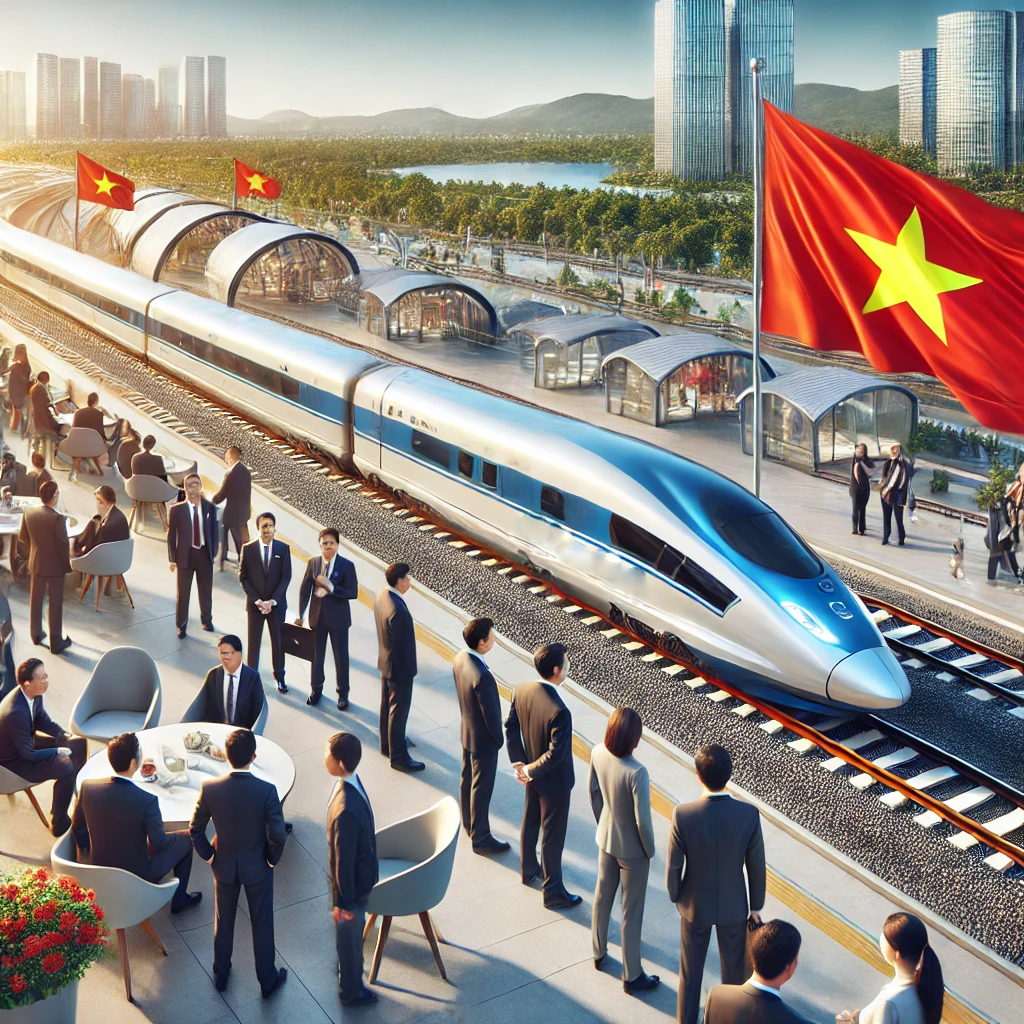
Illustration of Vietnam’s high-speed rail line, a project of great interest, as generated by AI ChatGPT
Based on joint assessments by the MOT and the General Statistics Office, the North-South High-Speed Rail Project is expected to contribute to an annual GDP growth of about 1% from 2025 to 2037.
With a 1,545 km high-speed rail line on the North-South axis, it is estimated that approximately 8.98 people/km will be required to manage and operate this line in Vietnam, totaling 13,880 people, based on international experience and calculations of personnel needs for each position.
Regarding ticket prices for the North-South high-speed rail, Deputy Minister of Transport Nguyen Danh Huy stated that ticket prices would be calculated as a percentage of average airfare.
“To make high-speed rail accessible to the public, we will offer three ticket classes: Business class tickets will be priced similarly to business-class airfare for those who desire high-quality service; the second class ticket will be priced at 0.75% of the average airfare; and the third class ticket will be 0.45% of the average airfare. We are categorizing tickets this way to make them more affordable for the public,” said Deputy Minister Huy.
According to Deputy Minister Huy, the average distance between stops is 100 km. If there is a high demand, up to 60 trains per hour can be operated. The North-South high-speed rail line, which is over 1,500 km long, is expected to have 24 stations.
Along with the Vietnamese government’s strong determination to build the North-South high-speed rail, major countries and organizations worldwide, from Asia to Europe, have expressed their desire to contribute to this key project.
A Host of Powerful Nations Aspire to Invest
South Korea
On the morning of July 16, Deputy Minister Nguyen Xuan Sang met and worked with Mr. Park Sang Woo, Minister of Land, Infrastructure, and Transport of South Korea (MOLIT).
The Vietnamese Ministry of Transport and MOLIT signed a memorandum of understanding (MOU) on transportation cooperation, providing a foundation for specific collaborations. Minister Park Sang Woo proposed that the two ministries sign MOUs in specific areas such as railways, roads, aviation, and maritime transport.
“Through the signing of this MOU, we hope to take substantial steps forward in our cooperation. In the immediate future, we can sign an MOU in the field of railways, especially high-speed railways,” Minister Park Sang Woo suggested.
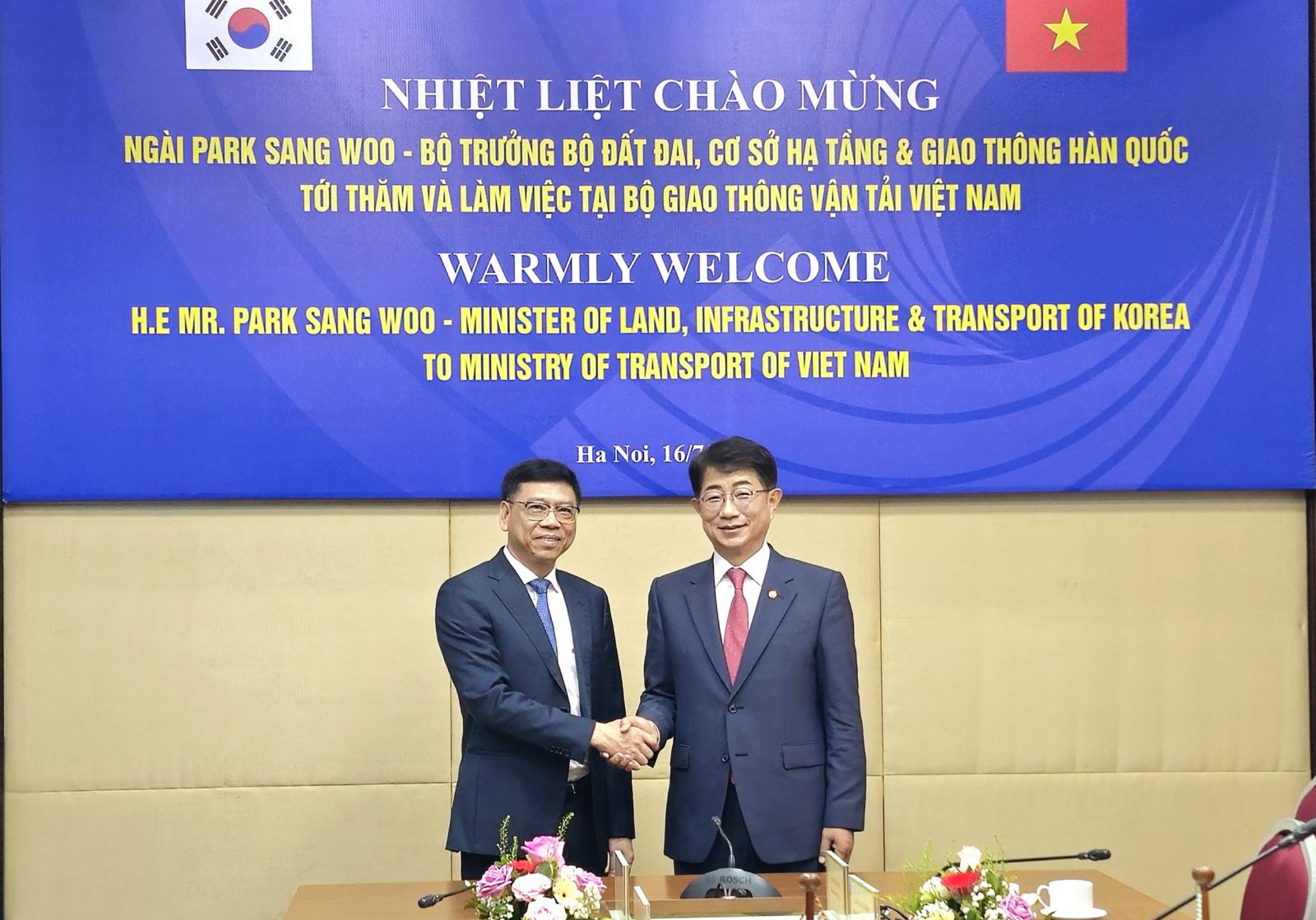
Image: Ministry of Transport
China
In the afternoon of June 25, in Dalian, China, Prime Minister Pham Minh Chinh met with Mr. Lou Qi Liang, Chairman of the Board of Directors and General Manager of the China Railway Signal and Communication Corporation (CRSC) – the world’s largest supplier of railway control and communication systems.
At the meeting, Minister Nguyen Van Thang emphasized that, in high-speed railways, the signal and communication system is of utmost importance and ensures the safety of the entire system. Given China’s advanced technology and competitive pricing, this presents a valuable opportunity, and both sides should establish supportive mechanisms to promote railway development projects in Vietnam.
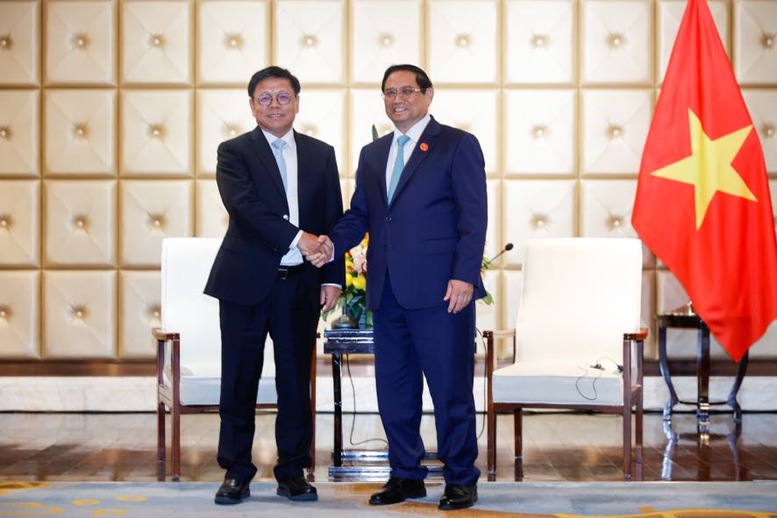
Prime Minister Pham Minh Chinh meeting with Mr. Lou Qi Liang, Chairman and General Manager of CRSC – Photo: VGP/Nhat Bac
In response, the leader of the China Railway Signal and Communication Corporation affirmed his desire to cooperate and provide safe, high-quality railway products and services to Vietnam, featuring advanced technology, robust digital transformation, and competitive pricing.
Previously, at the Belt and Road International Cooperation Forum held in China in late 2023, the China Communications Construction Company expressed its interest in participating in significant projects in Vietnam, including the planned North-South high-speed rail project.
Japan
On June 10, Minister of Transport Nguyen Van Thang met and worked with Japanese Ambassador to Vietnam Ito Naoki to promote bilateral cooperation in the field of transportation.
Ambassador Ito Naoki emphasized the importance of Japan’s cooperation in developing infrastructure, especially transportation infrastructure, in Vietnam. Japan is keenly interested and ready to share its expertise and support Vietnam in investing in transportation infrastructure projects, including new projects such as the North-South high-speed rail.
Regarding the North-South high-speed rail project, the Vietnamese government has requested Japan’s assistance in terms of both funding and technology. To materialize this cooperation, the Japanese Ambassador expressed his desire to be provided with detailed information and project documents.
Earlier, on March 11, a delegation from the Ministry of Finance of Vietnam, led by Minister Ho Duc Phoc, met and worked with the Ministry of Finance of Japan. During this meeting, Minister Ho Duc Phoc informed the Japanese Minister of Finance, Shunichi Suzuki, about the North-South high-speed rail project.

Minister Ho Duc Phoc and Minister Shunichi Suzuki. Photo: Ministry of Finance
On the Japanese side, Minister Shunichi Suzuki expressed his willingness to participate in the North-South High-Speed Rail Project, as well as other infrastructure projects that Vietnam is preparing to implement.
In January, at the Government Headquarters, Prime Minister Pham Minh Chinh met with Japanese Finance Minister Suzuki Shunichi and requested that the Japanese government support Vietnam in researching and constructing the North-South high-speed rail line. In response, Minister Suzuki Shunichi affirmed that Japan considered Vietnam’s requests meaningful and would study and coordinate to find feasible solutions.
In 2023, Vietnam had several bilateral engagements with Japanese leaders, all of which yielded positive outcomes related to the approximately $70 billion North-South high-speed rail project.
Federal Republic of Germany
In the afternoon of February 26, at the Government Headquarters, Prime Minister Pham Minh Chinh met with Mr. Roland Busch, Chairman and CEO of Siemens (Federal Republic of Germany), who was visiting and working in Vietnam.
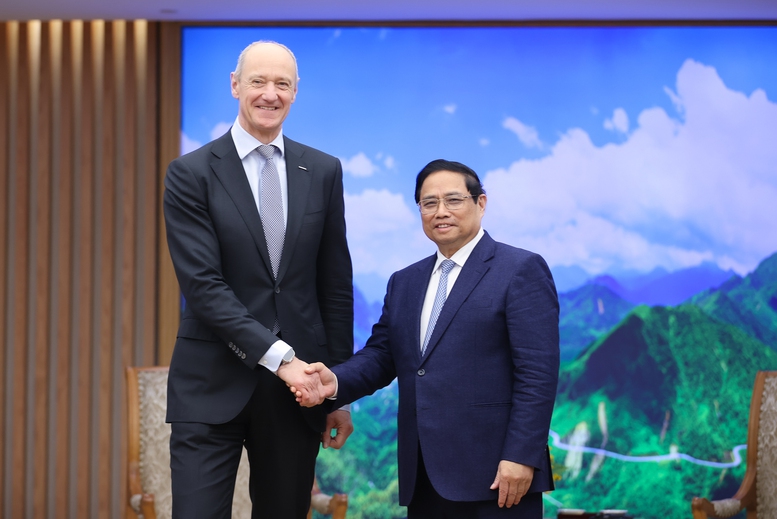
Prime Minister Pham Minh Chinh and Mr. Roland Busch, Chairman and CEO of Siemens – Photo: VGP/Nhat Bac
Thanking Prime Minister Pham Minh Chinh for his time, Siemens Chairman Roland Busch shared that Siemens is interested in the North-South high-speed rail project and can provide solutions for locomotives, carriages, and railway signaling systems, as well as technology transfer for carriage manufacturing.
Mr. Busch stated that Siemens is actively cooperating and eager to expand its collaboration, investment, and business in the fields and content mentioned by the Prime Minister, such as high technology, digital transformation, green transformation, and the development of a modern, high-speed transportation system, including cooperation in human resource training and supporting Vietnamese businesses in going global.
Spain
In a meeting at the beginning of 2023, Deputy Minister of Transport Nguyen Danh Huy and Her Excellency Pilar Méndez Jiménez, Ambassador Extraordinary and Plenipotentiary of the Kingdom of Spain to Vietnam, discussed the potential for cooperation in the railway sector.
“Vietnam also shares geographical similarities with Spain in developing its railway system. Therefore, Spain wishes to cooperate with the Ministry of Transport of Vietnam in developing the railway system in general and the high-speed railway in particular,” said the Ambassador, requesting the Ministry of Transport of Vietnam to provide information on railway projects, including the North-South high-speed rail project.
Commitments from International Banks
Asian Infrastructure Investment Bank (AIIB)
In the afternoon of July 16, Prime Minister Pham Minh Chinh met with Mr. Jin Liqun, President of the Asian Infrastructure Investment Bank (AIIB), who was visiting and working in Vietnam.
The Prime Minister requested that the AIIB provide consulting, financing, and support with concessional loans for Vietnam in large-scale, highly effective, and transformative infrastructure projects, such as the construction of the North-South high-speed rail line; three northern rail lines connecting to China and, through China, to Europe and Central Asia; and urban rail projects in Hanoi and Ho Chi Minh City.
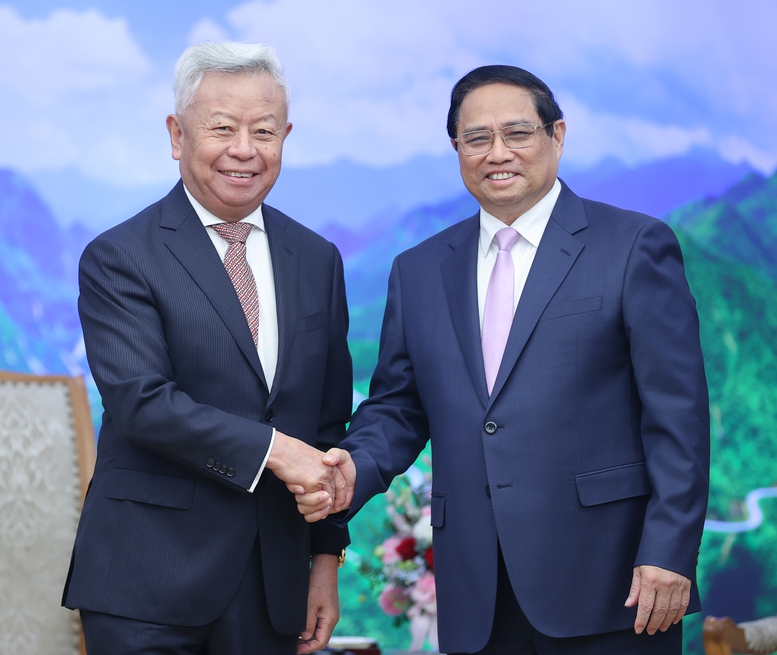
Prime Minister Pham Minh Chinh meeting with Mr. Jin Liqun, President of the Asian Infrastructure Investment Bank – Photo: VGP/Nhat Bac
In response, the AIIB President agreed to allocate approximately $5 billion in concessional loans for cooperation with Vietnam and strongly agreed with the Prime Minister’s emphasis on focusing on large-scale projects with streamlined procedures to ensure high effectiveness.
World Bank
On October 27, 2013, Prime Minister Pham Minh Chinh met with Ms. Carolyn Turk, Country Director of the World Bank in Vietnam.
Regarding future cooperation orientations, the Prime Minister requested that the World Bank provide flexible capital provision and management models to meet Vietnam’s diverse capital needs, prioritizing the implementation of significant projects in strategic transport infrastructure development, such as the North-South high-speed rail.
Agreeing with Prime Minister Pham Minh Chinh on the implementation of focused and prioritized projects, Ms. Carolyn Turk highly appreciated Vietnam’s commitments. She affirmed that the World Bank would continue to actively coordinate with Vietnamese agencies and accompany Vietnam in its socio-economic development, especially in the areas discussed during the meeting with the Prime Minister.
